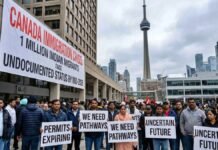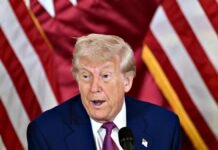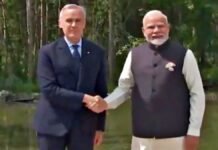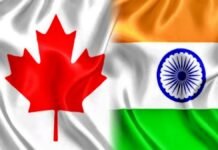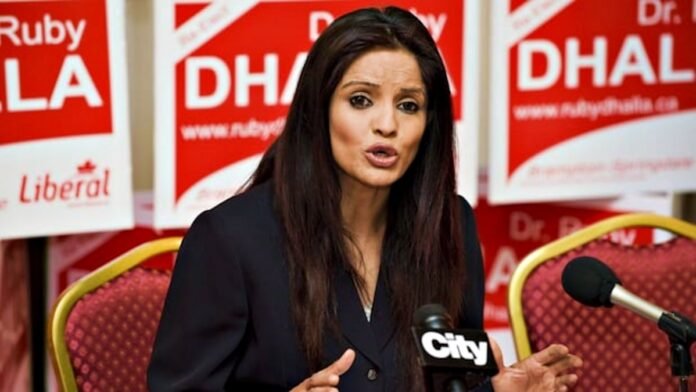
Key Points:
- Disqualification from Liberal Leadership Race: Ruby Dhalla, a former Liberal MP of Indian origin, has been disqualified from the race to replace Justin Trudeau as the leader of Canada’s Liberal Party and potentially the next prime minister.
- Serious Allegations: The Liberal Party accused Dhalla of 10 serious violations, including breaches of financial reporting rules, potential violations of the Canada Elections Act, and alleged foreign interference.
- Dhalla’s Response: She dismissed the allegations as “fabricated” and claimed her growing support threatened the party establishment.
- Leadership Race Dynamics: Dhalla’s exit narrows the field to four candidates, with Mark Carney and Chrystia Freeland emerging as frontrunners.
- Historic Background: Dhalla was one of the first Sikh women elected to Canada’s House of Commons and had positioned herself as an outsider in this leadership race.
Ottawa: In a dramatic turn of events, Ruby Dhalla, a former Liberal MP and prominent Indian-origin politician, has been disqualified from the race to succeed Justin Trudeau as leader of Canada’s Liberal Party. The decision, announced on Friday by the party’s leadership vote committee, came after an investigation into alleged violations of campaign finance rules and concerns over foreign interference.
The Allegations Against Dhalla
Azam Ishmael, the national director of the Liberal Party, stated that Dhalla was found to have committed 10 serious breaches of leadership rules. Key allegations include:
- Potential violations of the Canada Elections Act.
- Non-disclosure of material facts related to her campaign.
- Inaccurate financial reporting.
- Accepting donations from corporations in violation of campaign finance laws.
- Alleged foreign interference involving a non-Canadian citizen in her campaign.
The party also withheld $21,000 in campaign contributions while investigating whether 12 donors exceeded legal contribution limits. These donors reportedly shared similar last names and postal codes, raising concerns about coordinated efforts to bypass donation caps.
Dhalla Denies Allegations
Dhalla strongly rejected the accusations, calling them “fabricated, fictitious, and fake.” She claimed that the disqualification was politically motivated and intended to prevent her from challenging frontrunner Mark Carney in upcoming debates.
“The tactics used to remove me from this race only confirm what we already knew our message was resonating, we were winning, and the establishment felt threatened,” Dhalla said in a post on X (formerly Twitter). She further alleged that shifting accusations from foreign interference to campaign finance violations were part of an orchestrated effort to derail her candidacy.
Dhalla also criticized the party for leaking news of her disqualification to the media before informing her directly. “I learned about my disqualification through a CBC report while being interviewed live,” she said during an appearance on Power & Politics. “This speaks volumes about how the party operates.”
A Narrowing Leadership Race
Dhalla’s disqualification leaves four candidates in the race:
- Mark Carney: Former governor of the Bank of Canada and widely considered the frontrunner.
- Chrystia Freeland: Former finance minister with significant support within the party.
- Karina Gould: Former House leader known for her progressive policies.
- Frank Baylis: A businessman and former MP with grassroots appeal.
The remaining candidates will face off in French and English debates next week in Montreal ahead of the final leadership vote on March 9.
Who is Ruby Dhalla?
Ruby Dhalla is no stranger to Canadian politics or controversy. Born in Winnipeg to immigrant parents from Punjab, she made history as one of the first Sikh women elected to Canada’s House of Commons in 2004. Representing Brampton-Springdale until 2011, Dhalla was known for her advocacy on immigrant rights and healthcare reform.
Before entering politics, Dhalla pursued a career as a chiropractor and entrepreneur. She also dabbled in acting, starring in a Hindi-language film titled Kyon? Kis Liye? (Why? And For Whom?). Her diverse background made her a unique voice in Canadian politics.
A Campaign Built on Controversy
Dhalla entered the leadership race billing herself as an outsider willing to challenge party orthodoxy. Her platform included controversial proposals such as deporting illegal immigrants and imposing life sentences for possession of hard drugs policies that diverged sharply from traditional Liberal doctrine.
Despite these bold stances, her campaign gained momentum among grassroots supporters who valued her independence from Trudeau’s administration. However, critics within the party viewed her as a divisive figure whose policies could alienate key voter bases.
What’s Next for Dhalla?
While Dhalla has vowed to appeal her disqualification under party rules, political analysts believe her chances of reinstatement are slim. Nevertheless, she remains defiant. “I will not allow anyone to smear my name or that of my supporters,” she said. “This fight is far from over.”
Her disqualification has also sparked broader questions about transparency within the Liberal Party’s leadership process. Chandra Arya, another Indian-origin MP who was barred from running last month, described these developments as troubling. “This raises significant questions about the legitimacy of this leadership race,” Arya said.
Ruby Dhalla’s dramatic exit underscores deep divisions within Canada’s Liberal Party as it searches for new leadership amid declining public support. While her disqualification narrows the field for frontrunners like Mark Carney and Chrystia Freeland, it also highlights challenges around inclusivity and fairness within party politics.
As Canadians prepare for a new era post-Trudeau, all eyes will be on how this leadership race shapes not only the future of the Liberal Party but also Canada’s political landscape at large.

































